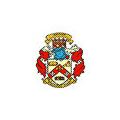Studies & Degrees in Marine Sciences
Choose where you would like to study Marine Sciences:
AlgeriaAustraliaBermudaCanadaChileChinaCosta RicaCroatiaEcuadorEgyptEstoniaFijiGreeceIndiaIndonesiaIraqItalyJordanNetherlandsNew ZealandNicaraguaOmanPhilippinesPortugalPuerto RicoRussiaSingaporeSpainSwedenSwitzerlandTanzaniaThailandThe United KingdomThe United StatesTrinidad and TobagoVietnamVirgin Islands, U.S.Marine Sciences Study Programs
Level: Undergraduate Bachelors
Location: Villanueva de la Cañada
The term “marine sciences” refers to a wide range of different subjects and practices, all related in some way to the study of the ocean and its inhabitants. The most popular form of marine science is the marine biology, the study of all the living things that inhabit the seas and compose fragile and complex marine ecosystems. There are, however, many other areas of specialization within the marine sciences, such as the study of ocean currents, marine weather patterns (including hurricanes and tsunamis), and pollution. Because of the fragility of the ocean and its central role in regulating the health of our planet, marine science is an extremely exciting and important field.
Personal Qualities
- Interest in the sea, ocean life, and/or the relationship of human beings to the marine environment
- Analytical, patient, and methodical mind
- Desire to spend long periods – perhaps as long as weeks or months – out on the ocean.
- Boating and diving expertise is a plus!
Study Options
Because marine science is such a diverse field, there are many areas of specialization to choose from, and your choice of a sub-field will determine the kind of training and preparation you will need. If you select marine biology, then of course a background in the life sciences is crucial. If, on the other hand, you’re more interested in pollution and man-made disasters such as oil spills, then a knowledge of chemistry and the industrial sciences will be useful. In all cases, you will need a strong grasp of basic biology, chemistry, physics, and environmental science or geology – if possible, begin your preparation early by taking advanced classes in high school so that you will have an advantage at the undergraduate and graduate levels.
Career Options
There are countless careers available for people who have studied marine science. They range from highly abstract research fields such as marine biologist to applied and down-to-earth paths such as working for various industries as a nautical engineer. One of the most lucrative career paths open to people with an expertise in marine science is to work for the fossil fuels industry. Oil companies are in constant need of well-educated employees to find offshore oil, design better tools to get it, and devise best practices for safety and profitability. Those who want to make a strong positive impact on the world may find a job studying methods for protecting and cleaning up the ocean.


